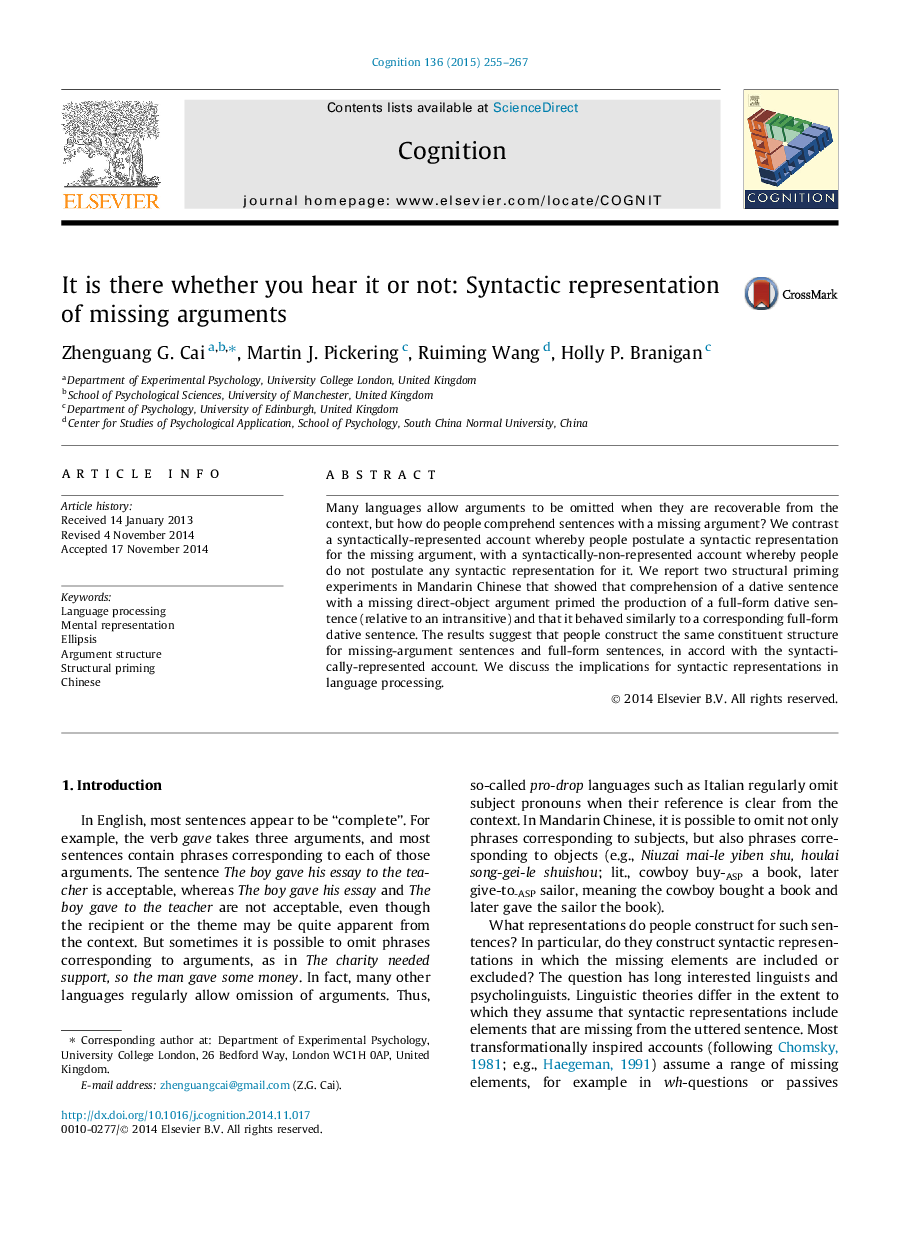| Article ID | Journal | Published Year | Pages | File Type |
|---|---|---|---|---|
| 7287362 | Cognition | 2015 | 13 Pages |
Abstract
Many languages allow arguments to be omitted when they are recoverable from the context, but how do people comprehend sentences with a missing argument? We contrast a syntactically-represented account whereby people postulate a syntactic representation for the missing argument, with a syntactically-non-represented account whereby people do not postulate any syntactic representation for it. We report two structural priming experiments in Mandarin Chinese that showed that comprehension of a dative sentence with a missing direct-object argument primed the production of a full-form dative sentence (relative to an intransitive) and that it behaved similarly to a corresponding full-form dative sentence. The results suggest that people construct the same constituent structure for missing-argument sentences and full-form sentences, in accord with the syntactically-represented account. We discuss the implications for syntactic representations in language processing.
Keywords
Related Topics
Life Sciences
Neuroscience
Cognitive Neuroscience
Authors
Zhenguang G. Cai, Martin J. Pickering, Ruiming Wang, Holly P. Branigan,
